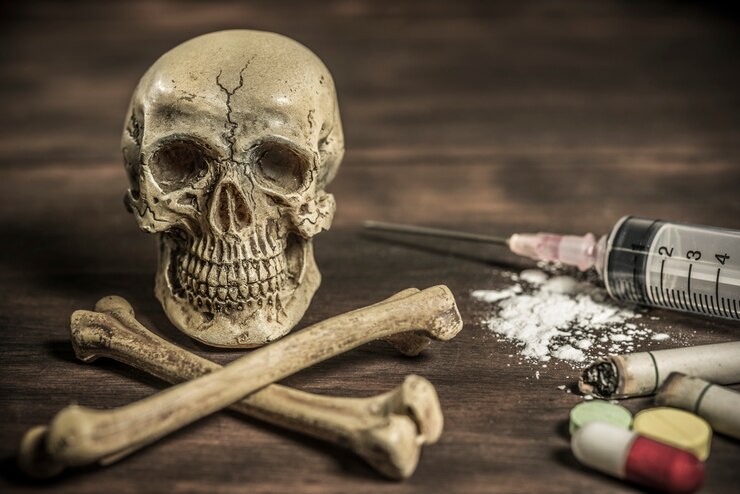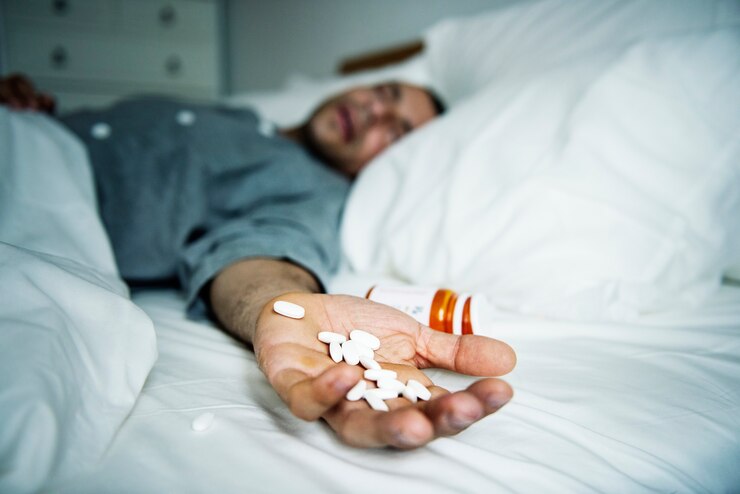State legislators seek to charge drug dealers with murder for overdoses resulting in death.
Maryland legislators are pushing forward with a proposed law that could bring serious consequences to drug dealers when their buyers suffer fatal overdoses. The bill, introduced this week, aims to make fentanyl and heroin dealers criminally responsible for deaths caused by their drugs, treating them similarly to homicide cases.
If passed, this legislation would create a new legal category specifically for drug-related deaths, allowing prosecutors to charge dealers with murder if their product leads to a fatal overdose. A conviction could result in a prison sentence of up to 20 years.
Senator Jeff Waldstreicher, who helped introduce the bill, said the focus is on accountability. He emphasized the dangers of fentanyl, pointing out that even tiny amounts can be deadly. He sees this bill as a way to take legal action against those distributing these dangerous substances.

The proposed law is named after four individuals who lost their lives to overdoses: Victoria, Scottie, Ashleigh, and Yader. For their families, this bill represents a chance for justice. Scottie’s father, Scott Broadfoot, shared his grief during a hearing, describing how his son died after taking fentanyl. A witness saw the transaction take place, yet current laws were not enough to hold the dealer accountable. He believes this legislation would close that gap and bring justice to families like his.
Supporters from both sides of the political aisle back the bill, believing it could help curb the sale of fentanyl and heroin. Delegate Chris Tomlinson spoke about the long-lasting pain families experience when losing a loved one to overdose. He sees this bill as a way to prevent future tragedies by putting stricter penalties on dealers.
Senate Minority Whip Justin Ready also voiced support, stressing that addressing drug-related deaths requires more than just treatment programs. While he believes in providing support and care for those struggling with addiction, he also feels that those knowingly selling lethal substances need to face serious consequences.
Not everyone agrees with the bill’s approach. Some addiction recovery advocates argue it could discourage people from seeking medical help in overdose situations. Maryland has a Good Samaritan Law designed to protect those who call 911 during an overdose, but some worry this new proposal could weaken those protections. Dan Rabbitt, a policy expert in Baltimore, warned that even with safeguards in place, people might still fear prosecution and hesitate to report an overdose.
In response, lawmakers behind the bill said they don’t believe it will lead to large-scale incarceration for fatal drug overdoses. A legal review suggested that only a handful of cases—about eight per year—would likely meet the criteria for prosecution under this law.
This debate comes as Maryland continues to search for solutions to its opioid crisis. Other measures under consideration include supervised drug use sites, which have been introduced in an effort to prevent overdoses and provide medical assistance when needed. Some officials, including Baltimore’s mayor, have looked to New York City’s model for supervised drug use as a potential approach for the city.
As discussions continue, families affected by opioid-related deaths remain hopeful that this proposed law could help bring justice and prevent future losses. Meanwhile, opponents urge lawmakers to ensure that any new legal measures do not deter people from seeking help during emergencies. The balance between accountability and harm reduction remains at the center of the debate, with both sides seeking ways to address the crisis without causing unintended consequences.
Sources:
Opioids bill would charge drug dealers with murder
2025 Regular Session – Fiscal and Policy Note for House Bill 1398
Maryland bill would charge drug dealers when opioid users die from overdose


Join the conversation!